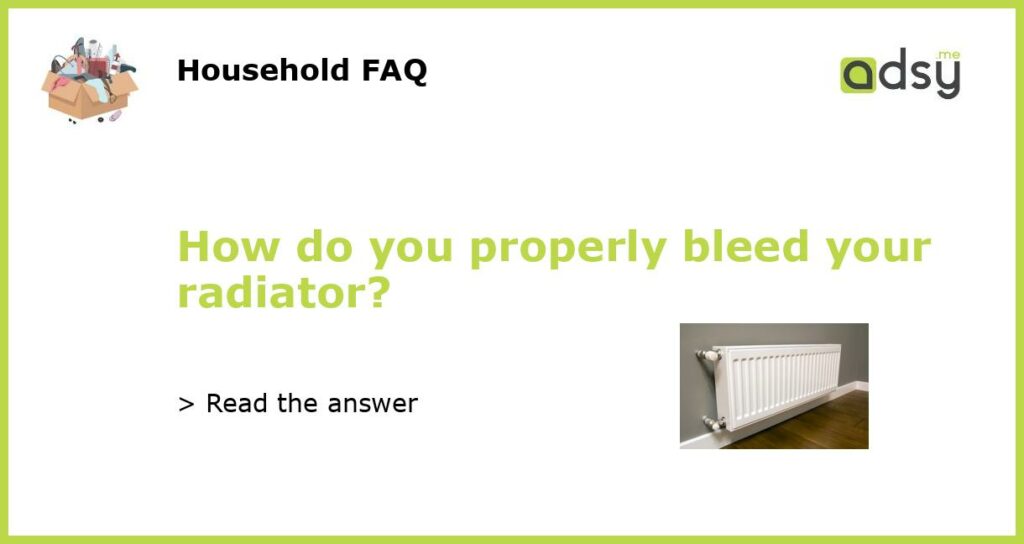Understanding the Need to Bleed Radiators
Do you ever notice that some of your radiators are not heating up properly? This can be frustrating, especially during the colder months. One of the common causes of this problem is air trapped inside the radiator. Bleeding is a simple process that can help remove the trapped air and get the radiator working properly again. Bleeding involves releasing the trapped air from the radiator so that hot water can freely circulate to provide enough heat.
Tools You Will Need
Before beginning, gather a few necessary tools. You will need a radiator key, a towel or bucket to catch the water, and someone to help you out. A radiator key is a small tool specially designed to open the valve found at the top of the radiator. You can find radiator keys at your local home improvement store or online marketplace.
Bleeding Your Radiator
First, ensure that your heating system is completely switched off. Next, locate the valve at the top of the radiator. You should see a small square nut or an oblong slit where the key can fit; this is the bleed valve. Once you find this, use the radiator key to turn it anti-clockwise until you hear hissing sounds. Hold the key firmly in place and be sure to have your towel or bucket ready to catch any water that may spurt out. Keep holding the key until water starts to flow out of the valve, then quickly close it by turning it clockwise.
Checking Your Radiator After Bleeding
Once you have bled the radiator, turn on your heating system and allow it to run for a while. Check the radiator again to make sure it is heating up properly. Also, check the pressure gauge on your boiler, as bleeding your radiator can cause a slight pressure drop. You can find more information about monitoring your boiler system on Boiler Juice.
When to Bleed Your Radiator
You should bleed your radiator at least once a year to prevent any air build-up or circulation issues. However, you may also want to bleed the radiator if you notice cold spots, gurgling sounds, or if it is slow to heat up. If you have any doubts or concerns about your heating system, it is best to contact a qualified heating engineer to assist you.






